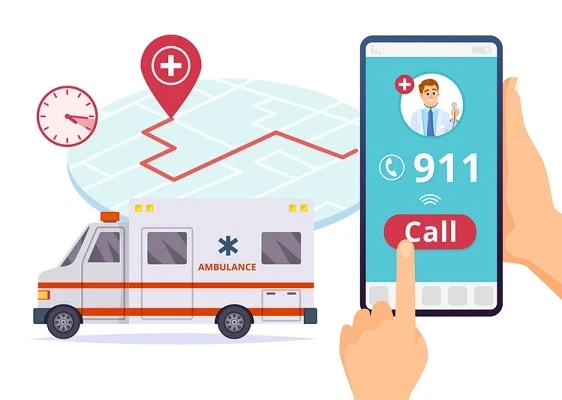Introduction:
In today's fast-paced world, technological advancements are transforming various sectors, and healthcare is no exception. One of the notable innovations in the healthcare domain is the development of ambulance apps that facilitate swift and efficient emergency response. Appicial, a leading name in app development, has played a pivotal role in shaping this transformative technology. In this blog post, we will explore the significance of ambulance app development and how Appicial is contributing to this critical aspect of healthcare.
The Need for Ambulance Apps:
Time is of the essence in medical emergencies, and quick access to professional medical assistance can be a matter of life and death. Traditional methods of calling emergency services may not always be efficient, especially in densely populated areas or situations where immediate action is required. Ambulance app bridge this gap by providing a streamlined and faster way to request emergency medical services.
Key Features of Ambulance Apps by Appicial:
User-Friendly Interface: Appicial ensures that the ambulance apps developed are user-friendly, allowing individuals to request assistance with just a few taps. Clear and intuitive interfaces make it easy for users to navigate the app, even in high-stress situations.Real-Time Location Tracking: Accurate location tracking is crucial in emergencies. Appicial's ambulance apps integrate real-time GPS technology, enabling precise identification of the user's location. This information is then relayed to the nearest available ambulance for a prompt response.Emergency Contact Integration: The app allows users to pre-set emergency contacts, including family members, friends, or healthcare providers. In case of an emergency, these contacts are notified automatically, keeping them informed about the situation.In-App Communication: Appicial's ambulance apps facilitate communication between the user and emergency services. Users can provide additional information or receive instructions from emergency responders through the app, ensuring better coordination during critical moments.Medical History Access: Users can input their medical history into the app, providing emergency responders with essential information about allergies, pre-existing conditions, and medications. This feature enhances the quality of care provided by ambulance services.Integration with Healthcare Systems: Appicial ensures seamless integration of ambulance apps with existing healthcare systems. This connectivity allows for the secure sharing of patient data between the app and hospitals, enabling medical professionals to prepare for incoming cases more effectively.Benefits of Ambulance Apps:
Reduced Response Time: The real-time location tracking feature significantly reduces the time it takes for an ambulance to reach the location of the emergency, potentially saving lives.Improved Coordination: In-app communication ensures better coordination between the user and emergency services, leading to more effective and efficient responses.Enhanced Patient Care: Access to the user's medical history allows emergency responders to provide more personalized and effective care, especially in cases where immediate medical intervention is required.Increased Accessibility: Ambulance apps make emergency services more accessible, catering to individuals who may face challenges with traditional communication methods.Conclusion:
Appicial's commitment to innovation in healthcare technology is evident in its ambulance app development. By creating user-friendly, feature-rich applications, Appicial is contributing to a future where emergency medical services are more accessible, responsive, and capable of providing the best possible care in critical situations. As technology continues to evolve, the impact of ambulance apps on emergency response and patient outcomes is set to become even more significant, thanks to pioneering efforts by companies like Appicial.



